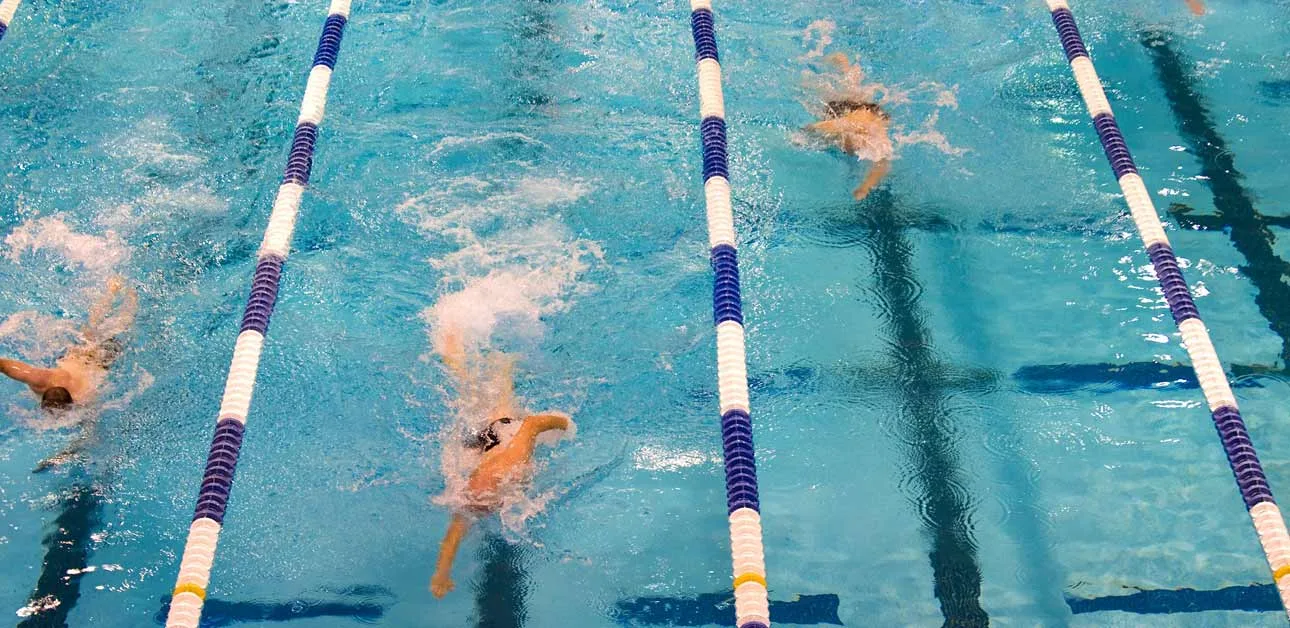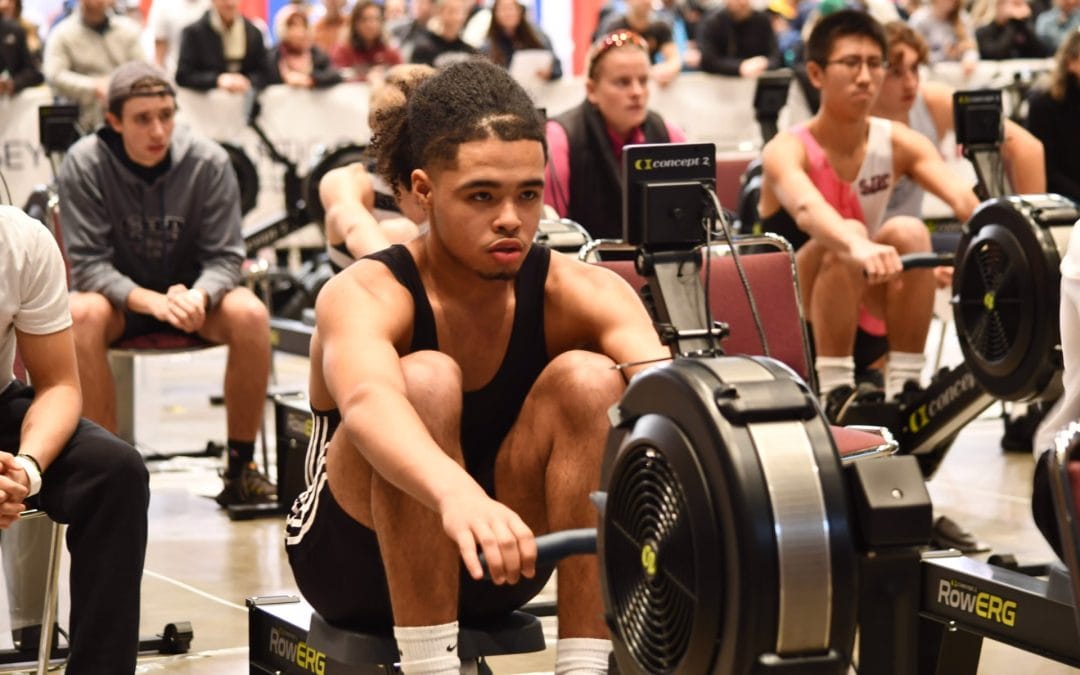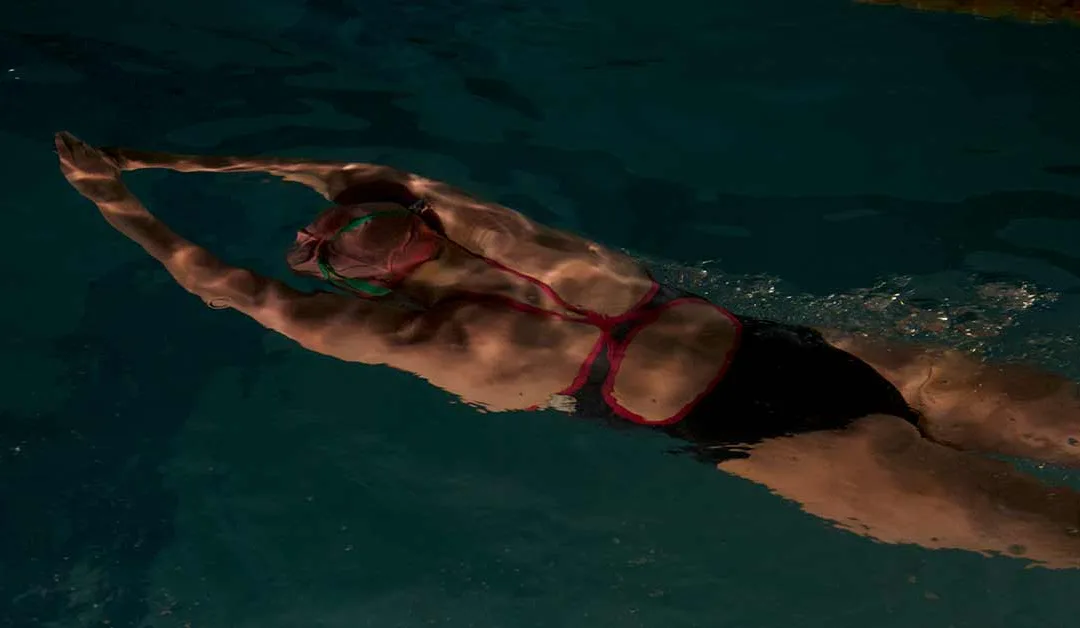Here at CrewLAB, we wanted to gain a deeper understanding of the challenges swim coaches face in managing their teams effectively. To do this, we conducted extensive research on the landscape of swimming in the U.S. by surveying and interviewing head coaches, assistant coaches, and athletic directors across all competitive levels.
Below is a summary of our findings. We learned a lot, and we’re excited to share these insights to help move the swimming community forward.
Market insights
- Swimming is one of the most structured and widely practiced sports in the U.S., with participation spanning high school, collegiate, and club levels.
- Top NCAA Division I swim programs invest significantly more in resources per athlete compared to other divisions, leading to better athlete development and higher performance.
- NCAA Division I programs, while making up only 20% of all programs, accommodate over 35% of all collegiate swimmers.
- More than 300,000 athletes compete in high school swimming annually across 7,000 programs.
- USA Swimming oversees over 3,100 competitive swim clubs, with more than 360,000 year-round athletes and 65,000 Masters swimmers participating.
We surveyed and interviewed hundreds of swim coaches to learn what helps teams succeed and where they struggle.
Our surveys included responses from coaches at every level, including NCAA Division I, II, III, NAIA, and club programs. Most respondents coached multiple disciplines and managed team sizes that typically ranged from 30 to 50 athletes, with some club programs exceeding 100 swimmers.
Coaching Resources
Coaches have access to a variety of resources that help them improve their knowledge and guide their teams. These include organizations like USA Swimming for certifications and clinics, ASCA (American Swimming Coaches Association) for courses and professional development, and CSCAA (College Swimming and Diving Coaches Association of America) for networking and coaching resources.
Coaches also reported that trusted mentors and experienced coaches such as Eddie Reese, Gregg Troy, Teri McKeever, and Bob Bowman have been instrumental in shaping their coaching philosophies. Additionally, many coaches benefit from local and regional coaching clinics, online resources, and podcasts like “Inside with Brett Hawke” and the “SwimSwam Podcast,” which provide ongoing insights and updates.
Coaching Challenges
Despite the wealth of resources available, coaches identified a range of challenges they face daily.
Time Management & Overwhelming Workloads
Coaches juggle multiple responsibilities, from practice planning and recruiting to administrative work and athlete management. Many coaches reported spending over 4+ hours per week updating data using manual systems like Google Sheets, whiteboards, and handwritten journals.
Inefficient Communication Systems
Most coaches use three or more platforms such as GroupMe, email, and text messages to keep swimmers informed. Yet, messages often get lost, leading to missed updates and confusion.
Athlete Engagement & Accountability
Coaches struggle to maintain athlete engagement and ensure swimmers take ownership of their training. Many athletes do not regularly check messages, causing communication gaps and missed opportunities for growth.
Data Overload Without Insights
While most teams collect performance data, turning raw numbers into actionable insights remains a challenge. Coaches expressed a desire for a platform that simplifies this process and helps them make more informed decisions.
Limited Budgets & Institutional Support
Many teams, especially at smaller colleges and clubs, operate with tight budgets, limiting their ability to access the best tools and resources.
What we learned
Several key findings stood out from our research. Coaches emphasized the importance of effective communication and cultivating a positive team culture as essential elements for success. However, they also highlighted that their current solutions—often a mix of disconnected platforms—fail to meet their needs, creating more work and limiting their ability to focus on athlete development.
Our findings also revealed that the most satisfied coaches weren’t just tracking data—they were using it to build stronger relationships with their athletes. When data is presented in a simple, clear, and actionable format, it fosters better communication, increased accountability, and stronger engagement between coaches and swimmers.
Introducing CrewLAB – a platform built to empower swim coaches
CrewLAB was designed with these insights in mind. Our team management software simplifies communication, tracks performance, and streamlines daily tasks, allowing coaches to spend more time doing what they love – coaching.
Used by over 10,000 athletes worldwide, CrewLAB empowers coaches to manage workouts, schedules, and team communication effortlessly.
“I love that CrewLAB is a one-stop shop for everything. I can manage the kids’ training and add my workout schedule ahead of time. It helps with communicating to everyone at the same time.” – Cheyne Inaman, Head Coach at West Torrance HS
Coaches like Cheyne Inaman, West Torrance High School have seen how CrewLAB enhances team culture and relationships.
With CrewLAB, coaches can reduce administrative burden, improve athlete accountability, and ultimately help their teams perform at their best.
In conclusion, understanding the needs of swim coaches involves addressing challenges in communication, performance tracking, and resource management. Platforms like CrewLAB offer solutions that streamline coaching tasks and foster stronger athlete relationships. By leveraging these tools, coaches can enhance their experience and support athletes more effectively in achieving their goals.






